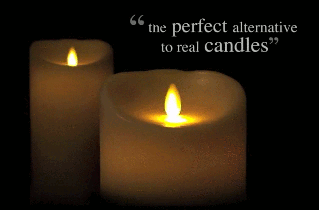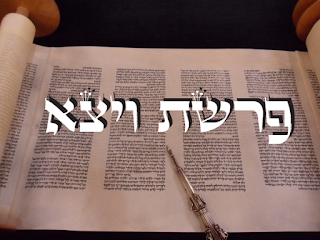Let's Talk Halacha: Using Electric Lights as Shabbat Candles
By Ken Lane
Because Kol Chesed is a mixed group of Rabbinic Jews as well as Karaite Jews, finding middle ground is always a plus. In the spirit of this, I’d like to address one aspect of observance that has historically divided Rabbinic Jews and Karaite Jews: the lighting of Shabbat candles.
For Rabbinic Jews, the lighting of Shabbat candles and the recitation of a blessing that says they are commanded to do so by the Rabboim is a part of their culture. For Karaite Jews, Shabbat candles are not a part of their culture as no outward open flame is allowed to exist in the home during Shabbat. We have an interesting note that I was showed by someone else from a Daily Halacha website:
Halacha requires lighting candles in the home before the onset on Shabbat every Friday. The Sages enacted this obligation in order to ensure the presence of "Shalom Bayit" – a sense of serenity in the home – on Shabbat. Without light, people are generally tense and anxious; the presence of light brings a feeling of calm, contentment and tranquility which characterizes the desired atmosphere we are to create in the home on Shabbat.
...
An interesting question arises concerning the status of electric lights with respect to this obligation. Since the purpose of this Misva is to provide light in the home, can one fulfill the obligation by turning on the electric lights in his home? Moreover, if one's home is already illuminated, how can he recite the Beracha over the lighting of the candles, which contributes a negligible amount of light to the home?
Hacham Ben Sion, in his work Or Le'sion (vol. 3, p. 189, and vol. 2, 18:13), writes that one does not fulfill the obligation of Shabbat candles with electric lights because the "fuel" is not present at the time of lighting. When a person lights a candle, all the wax or oil needed to sustain the flame is already present. An electric lamp, however, is sustained by the electric current that is constantly being fed into the lamp. Since that current is not present at the time of lighting, one cannot use such a light for this obligation. Hacham Ben Sion contends that this would be analogous to an oil lamp that has just several drops of oil, and into which one slowly pours oil drop by drop. Clearly, one cannot recite the Beracha over lighting in such a fashion, since the fuel needed to sustain the flame for the required period is not already present. Likewise, according to Hacham Ben Sion, one cannot fulfill the obligation of Shabbat candles with an electric light.
By the same token, one may recite a Beracha when lighting candles in a room that already has illumination from electric lights. Since those lights are not suitable for the obligation of Shabbat candles, the candles are needed for the fulfillment of the Misva, thus warranting a Beracha.
Of course, if we follow this rationale, we would allow using a battery-operated light for this Misva. As Hacham Ben Sion notes, in the case of a battery-operated light all the power is already contained in the mechanism, and it would therefore suffice for the obligation of Shabbat candle lighting. By extension, then, if one has battery-operated lighting in his home, he should extinguish those lights before kindling the Shabbat lights.
Hacham Ovadia Yosef, in his work Yabia Omer (vol. 9), disagrees, and rules that in principle, one can, in fact, fulfill the obligation with electric lights. Since when all is said and done electric lights have the effect of providing illumination, they suffice for this Misva regardless of the fact that the source of power is not currently present.
This ruling has numerous ramifications. For example, if a person spends Shabbat in a hotel or hospital, where he is not permitted to kindle a flame, he may turn on an electric light before Shabbat in fulfillment of the obligation to light Shabbat candles. (Rav Aharon Kotler is likewise reported to have taken this position.) Similarly, if a person spends Shabbat in somebody else's home, and is given a room to which he has exclusive access, he may turn on a closet or bathroom light to fulfill the obligation of Shabbat candles.
Summary: Different views exist as to the status of electric lights with regard to the obligation of Shabbat candles. Whereas Hacham Ovadia Yosef maintained that one may, in fact, fulfill his obligation with electric lights, Hacham Ben Sion Abba Shaul held that one may not fulfill the obligation with electric lights, unless they are battery-operated.
In my house, we have a minhag of turning battery-powered LED candles with no bracha recited for them. (We have other brachot recited during the Shabbat Kiddush that welcomes the atmosphere into our home.) These lights have an artificial “flicker” to them to replicate flames and they are very agreeable to some my more traditionally Rabbinic Jewish friends who visit for Shabbat.
Whatever your minhag, it’s always nice to keep a spirit of bridge-building in mind throughout your observance in order to perpetuate ahavat Yisrael - the love of your fellow Jew.


I like how you are always looking for ways to build bridges. Very positive and inspiring.
ReplyDelete-Taavi
Thank you, sir.
Delete